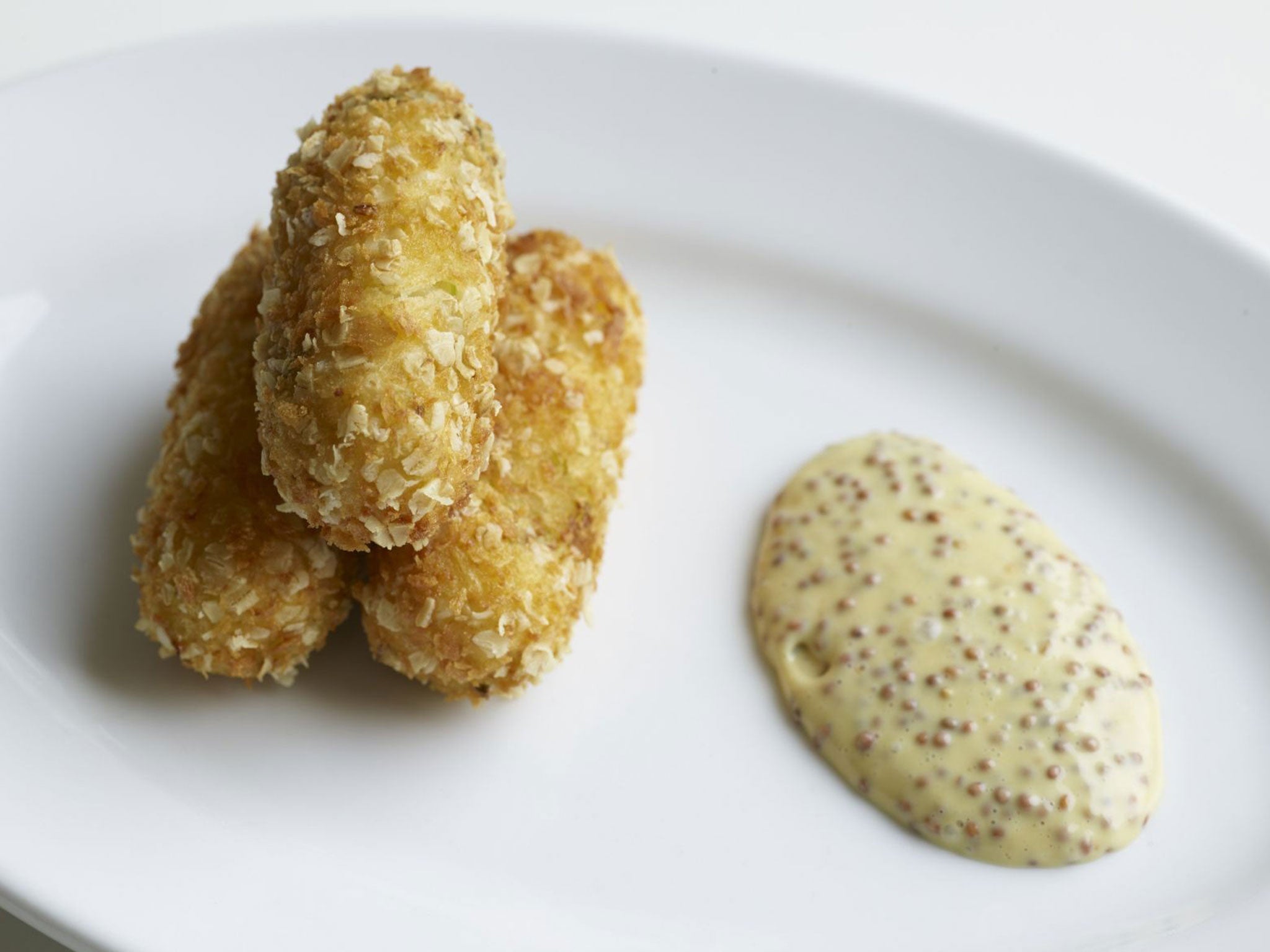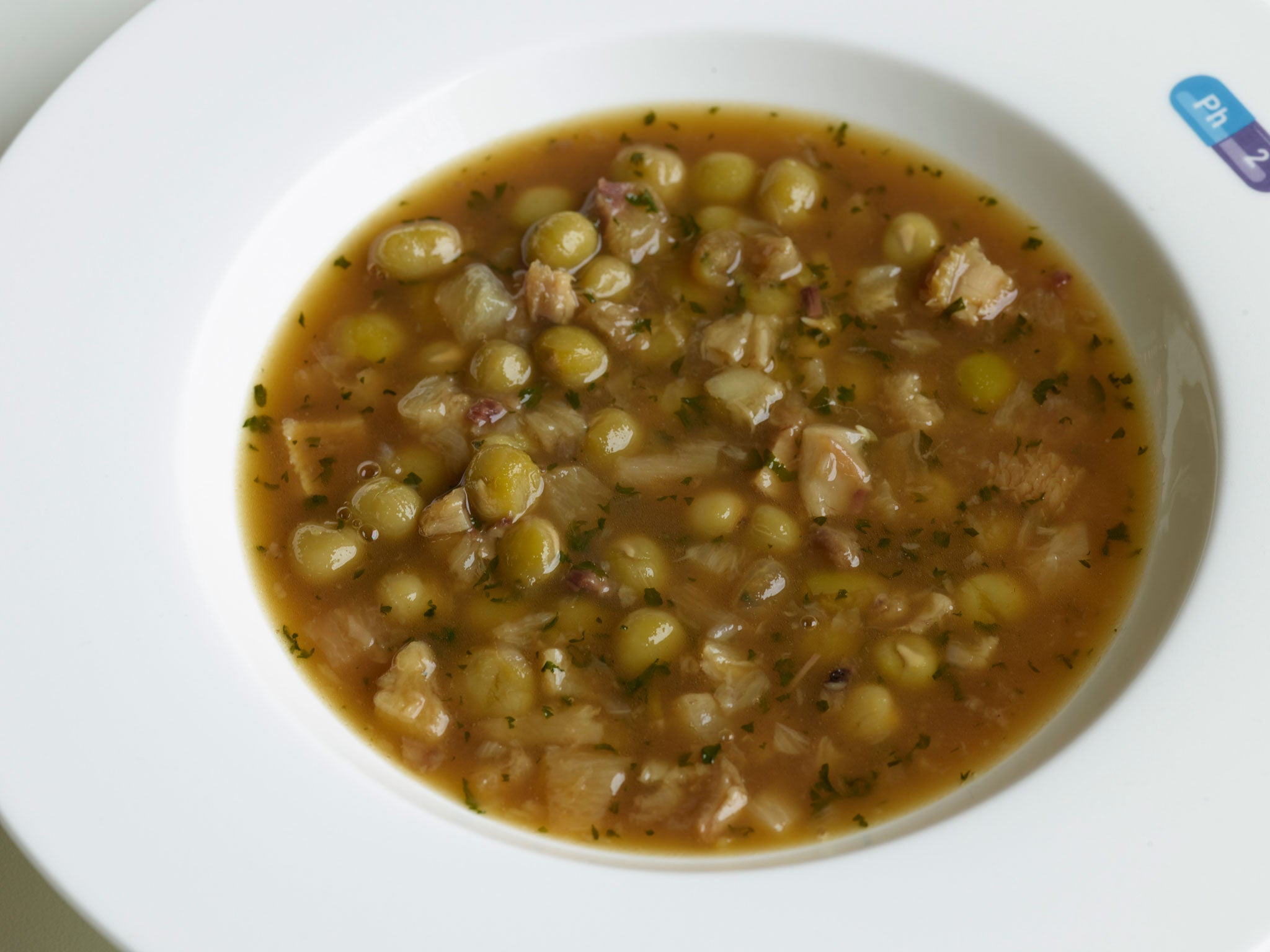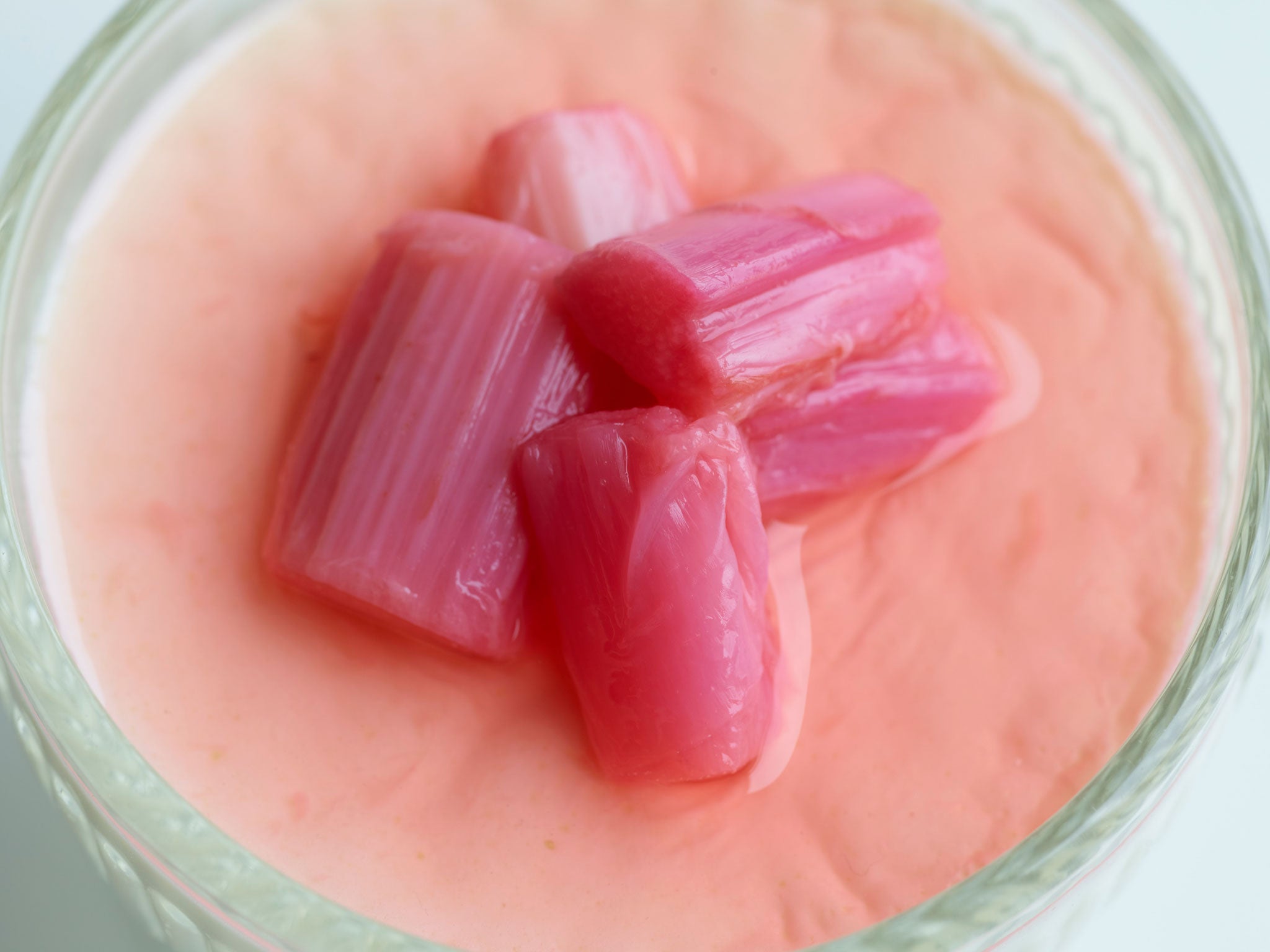Mark Hix recipes: Fresh twists on hearty Irish classics for St Patrick's Day
Traditional Irish ingredients are satisfying and simple, which means you can do so much with them

Around the world this Thursday, towns and cities that are home to large Irish populations will be dappled with green and filled with Guinness-drinking revellers.
But aside from the liquid consumption, how about celebrating in a culinary fashion with some Irish classics given a a new spin? Traditional Irish ingredients are satisfying and simple, which means you can do so much with them.
Colcannon and gubbeen croquettes
Makes 10-12 croquettes
You don't often see croquette potatoes these days; I think they died a death during the 1970s when every pub and restaurant used to serve those frozen ones. But they are delicious made fresh as snacks or side dishes. Try serving with a garlic or mustard mayonnaise.
350-400g floury potatoes, peeled and roughly chopped
Salt and freshly ground white pepper
200g green cabbage like savoy, cut into rough 1cm squares, cooked then well drained and dried
150g gubbeen or other creamy, semi-soft cheese, grated
2-3tbsp flour
2 small eggs, beaten
30g fresh white breadcrumbs mixed with 30g oatmeal
Cook the potatoes in boiling salted water, then drain and return to the heat for a minute to dry them out and evaporate any excess water. Preferably using a potato ricer, mash the potatoes. Season and stir in the cabbage and cheese, mixing well. Mould the mixture into cylindrical shapes about 3cm long and a little slimmer than a wine cork.
Have the flour ready in a dish and and carefully roll the croquettes in it, holding them with your fingers and shaking off any excess. Next roll them in the beaten egg, and finally roll them in the breadcrumbs and oats.
Preheat about 8cm of oil to 160-180C in a large, thick-bottomed saucepan or electric deep-fat fryer. When the oil is hot, fry the croquettes a few pieces at a time for 3-4 minutes until they are golden. Drain on some kitchen paper and serve immediately.
Bacon knuckle and marrowfat pea soup
Serves 4-6
If you are going to boil a ham hock, then it makes sense to create a hearty soup like this with the stock, or you could use some pre-cooked ham or gammon. 1 small bacon knuckle or hock, soaked overnight in cold water
30g butter
1 medium onion, finely chopped
A few sprigs of thyme
60g marrowfat peas, soaked overnight in cold water
2 sticks of celery, peeled if necessary and cut into rough 1cm squares
1 medium leek, cut into rough 1 cm squares and washed
A few leaves of green cabbage, washed and cut into rough 1cm squares
Salt and freshly ground black pepper

Rinse the hock off, transfer to a saucepan and cover well with water. Bring to the boil and simmer very gently for 1.5-2 hours or until the meat is tender. Remove the bacon from the pan, reserving the cooking liquid, and leave to cool.
Melt the butter in a heavy-bottomed saucepan and gently cook the onion for a few minutes until soft but without letting it colour. Add to the ham cooking liquid along with the thyme and the drained and rinsed peas, then bring to the boil. Simmer for 15 minutes then add the celery and leek and continue simmering until the peas are tender.
Cut the ham hock into rough 1cm cubes and add to the soup with the cabbage and season if necessary – maybe just the pepper – and simmer for another 5 minutes before serving.
Carrageen moss rhubarb pudding
Serves 4-6
Carrageen moss, also known as Irish moss, is a pretty-looking edible seaweed that has been used for centuries as a natural setting agent rather as we use gelatine. You can buy it from health food shops or in good supermarkets.
10g carrageen moss, soaked in water for 20 minutes
800ml single cream
½ vanilla pod
30g caster sugar
1 large egg, separated
For the topping
80g caster sugar
200g rhubarb, cut into 1-2 cm pieces

Drain the carrageen moss and put it into a saucepan with the cream. Halve the vanilla pod lengthways and scrape the seeds out. Put both seeds and pod into the pan with the cream. Bring to the boil and simmer very gently for 30 minutes – a simmer plate is good for this. Remove from the heat and strain through a fine-meshed sieve.
Mix the sugar and egg yolks together and stir into the cream mixture, then leave to cool. Whisk the egg whites until stiff then gently fold into the cooled cream mixture then transfer into individual or one large serving dish and leave to set in the fridge for a few hours or overnight.
Meanwhile put the sugar into a pan with a little water and bring to a simmer while stirring, until dissolved. Add the rhubarb and stir on a low heat for a couple of minutes until it softens but isn't falling apart. Then leave to cool.
To serve, spoon the rhubarb and syrup on to the set pudding.
Join our commenting forum
Join thought-provoking conversations, follow other Independent readers and see their replies
Comments
Bookmark popover
Removed from bookmarks